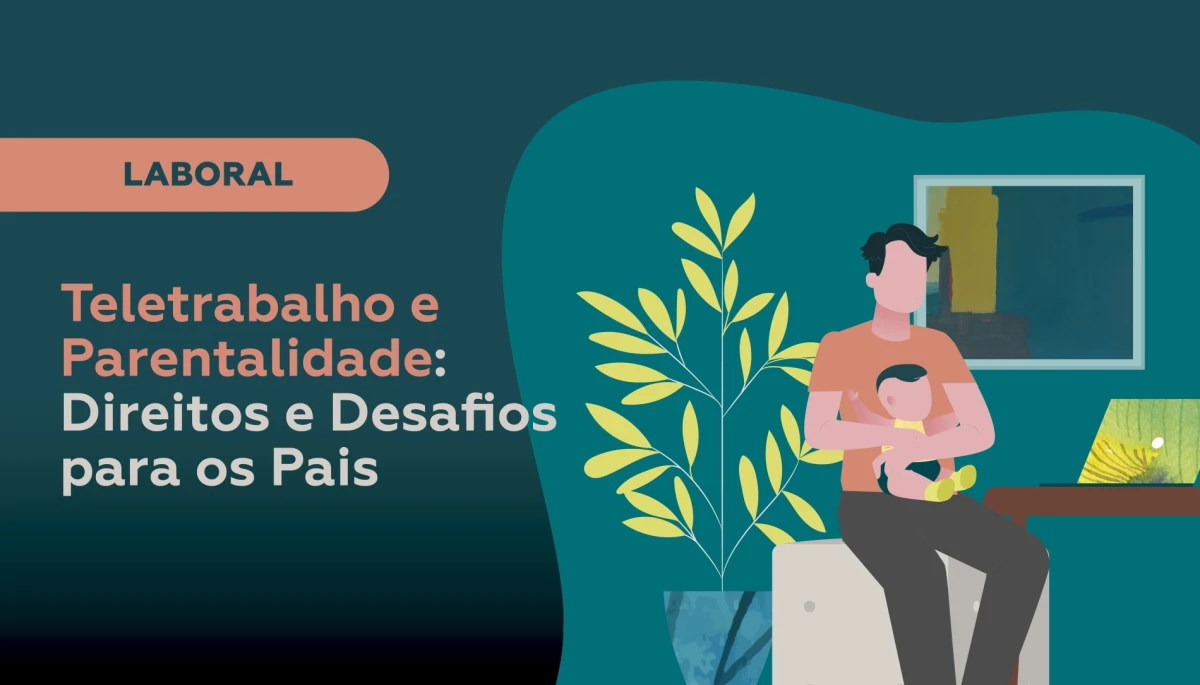Remote work emerges as a solution that allows for the balance between professional and family life, but for many parents, it presents significant challenges. The difficulty in setting boundaries between work hours, mental overload, and the lack of understanding from employers are some of the obstacles faced.
The Portuguese Labor Code establishes specific rules for working parents, varying according to the age of the children and other circumstances.
Parents with children up to 3 years old
Workers with children up to 3 years old can request remote work, provided that:
i) The nature of their work is compatible with remote work; and
ii) The employer has the necessary resources to facilitate it.
Parents with children up to 8 years old
In this case, there is also a right to remote work if:
i) Both parents alternate working remotely in successive periods within a 12-month period;
ii) The family is single-parent; or
iii) Only one parent meets the conditions to perform their duties under a remote work arrangement.
Parents with children with disabilities, chronic illnesses, or cancer
In these situations, the right to remote work applies regardless of the child's age, provided that the child lives with the worker in the same household and is economically dependent on them.
In the cases mentioned, the implementation of remote work is a worker's right. This is a mandatory right that can be exercised regardless of the employer's approval. The employer cannot oppose it unless they can prove that the necessary conditions are not met—namely, that the nature of the job is incompatible with remote work.
However, in practice, many employers impose barriers to remote work, limiting or even preventing its implementation, even when it is legally a worker's right.
What can workers do in these situations?
Workers can first turn to the Authority for Working Conditions (ACT), which has the power to intervene to ensure compliance with the law. If necessary, workers can also take legal action, requesting the courts to recognize their right and enforce the employer’s compliance.
Outside of situations where remote work is a legal right, it can still be applied by mutual agreement between the worker and employer. If the request is made by the worker, any refusal from the employer must be justified with objective reasons, such as incompatibility with job functions, essential business operation requirements, or lack of adequate resources to support remote work.
Case Law and Additional Protections
Courts have reinforced the importance of balancing professional and family life, condemning unjustified refusals of remote work.
Furthermore, the law ensures that remote workers have the same rights as those working on-site, including training, career progression, working hour limits, rest periods, paid leave, occupational health and safety protections, and compensation for work-related accidents and occupational diseases.
Remote work can facilitate parenting but also presents practical challenges. Portuguese legislation protects working parents by ensuring essential rights. However, the success of this model depends on companies’ understanding and adaptability.
Remote work represents an important opportunity for parents to balance their professional and family responsibilities, but its implementation is not always free of obstacles. Although Portuguese law has evolved to secure fundamental rights for workers with children, the reality shows that significant challenges remain in its practical application.
More than just a right, remote work should be seen as a strategic tool to promote well-being and productivity. For this to happen, both employers and employees must adopt a more flexible and cooperative approach, ensuring that legal compliance translates into meaningful improvements for all. Only then can remote work become an effective and sustainable solution for modern parenting.





